Are you considering bringing an Icelandic Sheepdog into your home as a new pet? If so, you’re in for a treat. The Icelandic Sheepdog is a delightful and charming breed, known for its friendly personality, intelligence, and loyalty. Originally bred for herding and guarding, this breed is adaptable to a variety of lifestyles, making it an excellent choice for families, singles, and seniors alike. In this article, we’ll explore the unique characteristics of the Icelandic Sheepdog, including its appearance, temperament, and care requirements, to help you determine if this breed is right for you.
Breed Category: Herding
Country of Origin: Iceland
Average Size:30-45 cm
Average Weight:9-14 kg
Average Life Span: 12-16 years
Grooming Requirements: Moderate
Exercise Requirements:Moderate to high
History and Origin
The Icelandic Sheepdog is a breed of dog that has been around for centuries. It is believed that the breed was brought to Iceland by the Vikings in the 9th century. The Icelandic Sheepdog was used as a herding dog, as well as a watchdog and a companion. The breed was almost extinct in the 20th century, but thanks to the efforts of breeders, it has made a comeback.
The Icelandic Sheepdog is a small to medium-sized dog that is known for its thick, double coat. The coat can be a variety of colors, including black, gray, and brown. The breed is known for its friendly and outgoing personality, and it is a great family dog. The Icelandic Sheepdog is also very intelligent and easy to train.
The Icelandic Sheepdog was almost extinct in the 20th century due to a canine distemper outbreak and crossbreeding with other breeds. However, a group of breeders in Iceland worked to save the breed. They started a breeding program in the 1960s, and the breed was officially recognized by the Icelandic Kennel Club in 1969.
The Icelandic Sheepdog is a hardy breed that is well-suited to the harsh climate of Iceland. The breed is known for its ability to work in all kinds of weather conditions, including snow, rain, and wind. The Icelandic Sheepdog is also a great hiking companion, and it loves to explore the great outdoors.
The Icelandic Sheepdog is a breed that is deeply rooted in Icelandic culture. The breed has been featured in Icelandic literature and art for centuries. The Icelandic Sheepdog is also the subject of many Icelandic folktales and legends. In fact, the breed is so important to Icelandic culture that it was declared the national dog of Iceland in 2018.
In conclusion, the Icelandic Sheepdog is a breed that has a rich history and a deep connection to Icelandic culture. The breed was almost extinct in the 20th century, but thanks to the efforts of breeders, it has made a comeback. The Icelandic Sheepdog is a hardy and intelligent breed that is well-suited to the harsh climate of Iceland. It is also a great family dog and a beloved part of Icelandic culture.
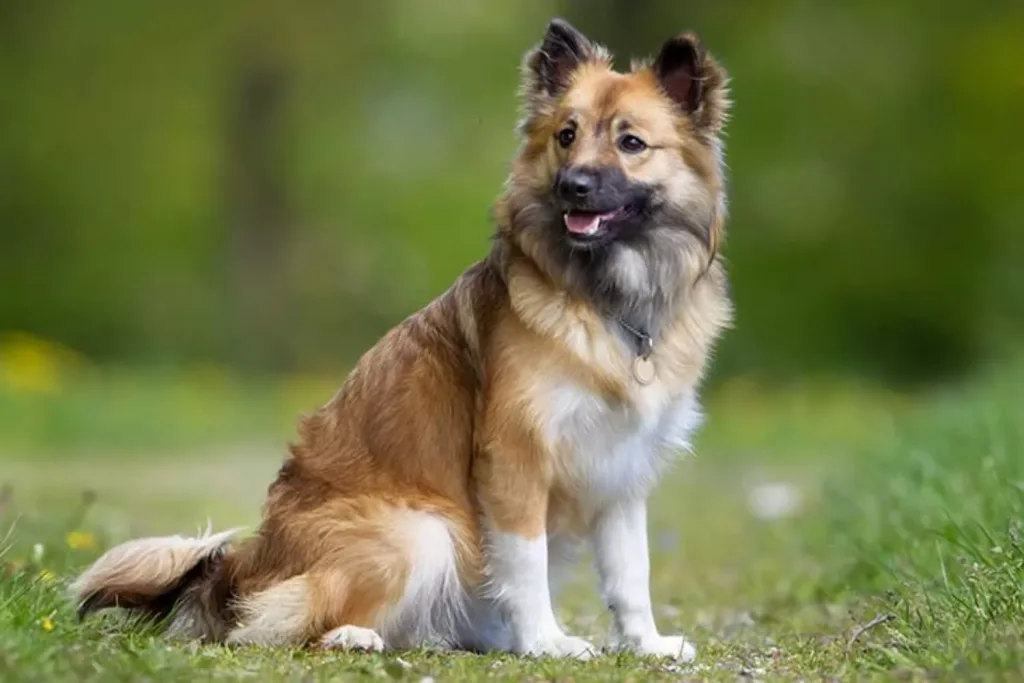
Size and Breed Category
The Icelandic Sheepdog is a small to medium-sized breed, with an average height of 12-16 inches (30-40 cm) at the shoulder and a weight of 20-30 pounds (9-14 kg). They have a sturdy and muscular build, with a thick double coat that comes in a variety of colors, including black, white, gray, and tan. The breed is known for its fox-like appearance, with pointed ears and a curled tail. Despite their small size, Icelandic Sheepdogs are known for their endurance and agility, making them well-suited for herding and other outdoor activities.
The Icelandic Sheepdog is classified as a spitz-type breed, which is characterized by their thick fur, pointed ears, and curled tails. They are one of the oldest breeds of dog in the world, with a history that dates back over a thousand years. Originally bred for herding and guarding livestock, the Icelandic Sheepdog is a hardy and adaptable breed that can thrive in a variety of environments. They are also known for their friendly and outgoing personalities, making them popular as family pets. However, due to their strong herding instincts, they may not be suitable for households with small children or other pets.
Fur Length and Colour
The fur of the Icelandic Sheepdog is typically medium in length, with a thick undercoat and longer, coarser guard hairs. The fur is designed to protect the dog from the harsh Icelandic climate, and is particularly dense around the neck, chest and tail. The fur can come in a range of colours, including black, grey, tan, and white, often with a combination of these colours in a distinctive pattern. The fur is also often marked with darker shading around the eyes and muzzle, giving the dog a distinctive and alert appearance.
The Icelandic Sheepdog’s fur is an important part of its appearance and function, providing both insulation and protection from the elements. The fur is also relatively easy to care for, requiring regular brushing to remove loose hairs and prevent matting. The breed’s fur can vary in thickness and texture depending on the individual dog, with some dogs having a softer, fluffier coat and others having a coarser, more wiry texture. Overall, the Icelandic Sheepdog’s fur is an important part of its unique appearance and character, reflecting the breed’s history and function as a hardy and adaptable working dog.
Termperament and Trainability
Icelandic Sheepdogs are known for their friendly and outgoing temperament. They are highly sociable and enjoy being around people and other animals. They are also very loyal and protective of their family, making them excellent watchdogs. However, they can be quite vocal and may bark excessively if not properly trained.
In terms of trainability, Icelandic Sheepdogs are intelligent and eager to please their owners. They respond well to positive reinforcement training methods and enjoy learning new tricks and commands. However, they can be stubborn at times and may require patience and consistency from their owners. It is important to start training early and to provide plenty of mental and physical stimulation to prevent boredom and destructive behavior.
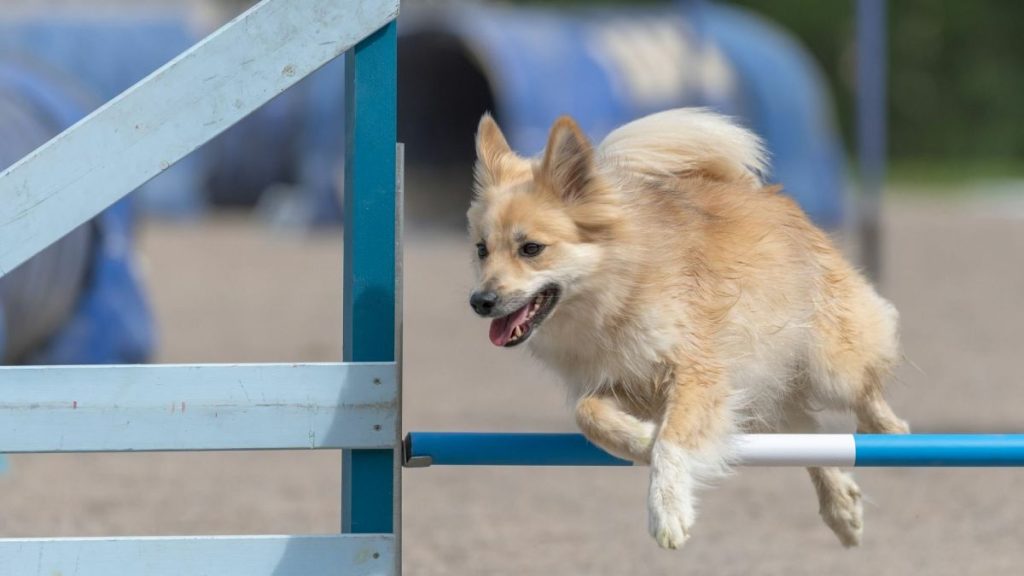
Known Health Conditions
Icelandic Sheepdogs are prone to certain health conditions that owners should be aware of. One of the most common issues is hip dysplasia, which is a genetic condition that affects the hip joint. This can cause pain, lameness, and arthritis in the affected joint. Another condition that can affect Icelandic Sheepdogs is progressive retinal atrophy, which is a degenerative eye disease that can lead to blindness. It is important for owners to have their dogs screened for these conditions and to work with a veterinarian to manage any symptoms that may arise.
In addition to hip dysplasia and progressive retinal atrophy, Icelandic Sheepdogs may also be prone to allergies. This can manifest as skin irritation, itching, and ear infections. Owners should be aware of any signs of allergies and work with their veterinarian to identify the cause and develop a treatment plan. Another potential health issue for Icelandic Sheepdogs is dental disease, which can lead to tooth loss, gum disease, and other complications. Regular dental care, including brushing and professional cleanings, can help prevent these issues from developing.
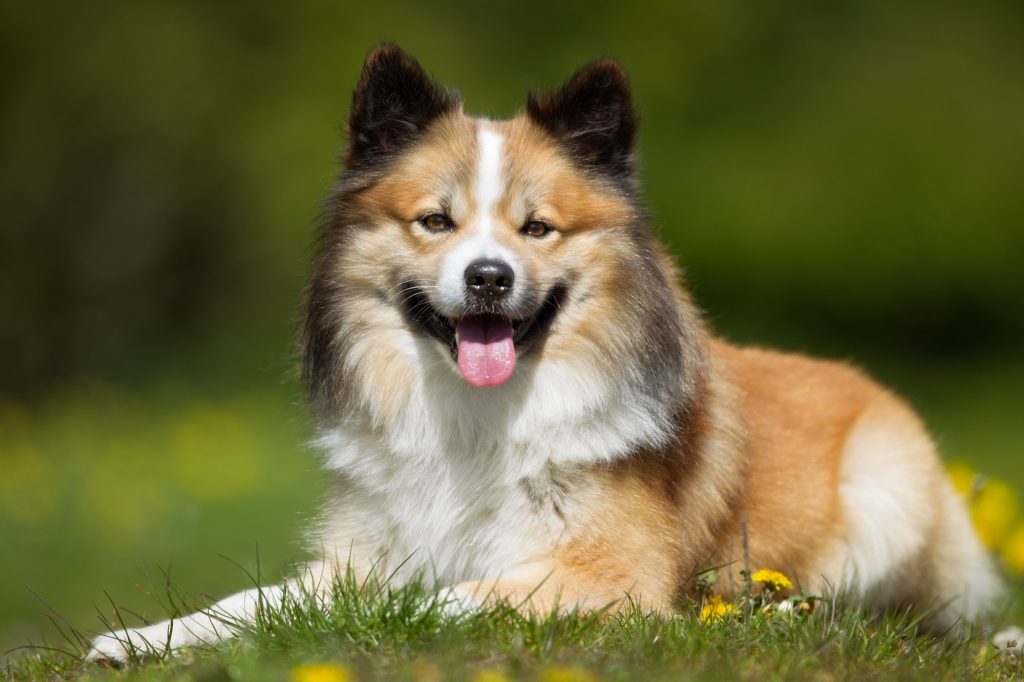
Openness to Strangers
Icelandic Sheepdogs are known for their friendly and welcoming nature towards strangers. They are a breed that is always eager to meet new people and make new friends. This trait makes them excellent family pets as they are always ready to greet visitors with a wagging tail and a friendly bark. They are also known to be very sociable with other dogs and animals, making them a great addition to multi-pet households.
Their openness to strangers is not limited to humans and other animals, as Icelandic Sheepdogs are also known to be very adaptable to new environments. They are a breed that is comfortable in both rural and urban settings, and they are always eager to explore new places. This adaptability makes them great travel companions, as they are always up for an adventure. Additionally, their friendly nature makes them great therapy dogs, as they are able to provide comfort and companionship to people in need.
Playfulness Level
The Icelandic Sheepdog is a highly playful breed of dog that loves to engage in various activities. They are known for their energetic and lively nature, which makes them an excellent companion for families with children. These dogs are always up for a game of fetch or a run around the park, and they will happily play for hours on end. Their playful nature also makes them great at learning new tricks and commands, as they are always eager to please their owners.
In addition to their love for physical activities, the Icelandic Sheepdog is also known for their playful personality. They are incredibly social dogs that enjoy spending time with their owners and other dogs. They are always up for a good cuddle or a belly rub, and they will often seek out attention from their owners. Their playful nature also makes them great at adapting to new environments and situations, as they are always curious and eager to explore. Overall, the Icelandic Sheepdog is a highly playful breed that brings joy and energy to any household.
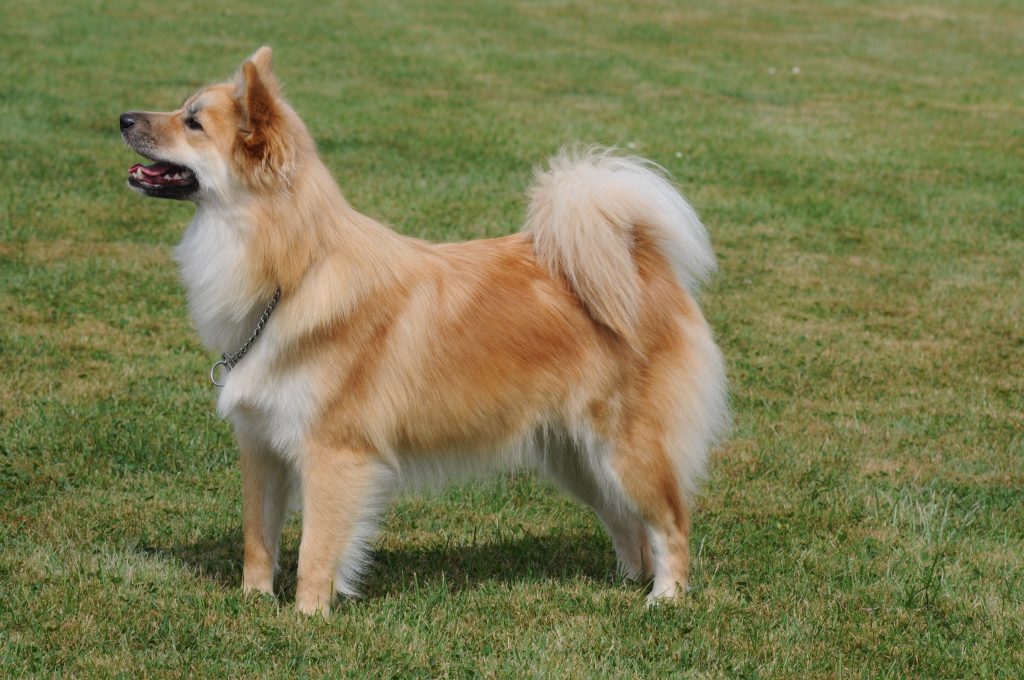
Suitability as a Pet for Children
Icelandic Sheepdogs are known for their friendly and playful nature, making them a great choice as a pet for children. They are also highly intelligent and easy to train, which can make them a good fit for families who are looking for a dog that is easy to manage. Additionally, Icelandic Sheepdogs are known for their loyalty and affection towards their owners, which can make them a great companion for children who are looking for a furry friend to play with. Overall, the Icelandic Sheepdog is a great choice for families who are looking for a friendly and easy-to-manage pet that will provide plenty of love and affection.
Exercise Needs
Icelandic Sheepdogs require a moderate amount of exercise to maintain their physical and mental health. As a medium-sized breed, they benefit from daily walks or runs of at least 30 minutes. They also enjoy playing games such as fetch or agility training, which can provide additional mental stimulation. It is important to note that Icelandic Sheepdogs have a strong herding instinct and may try to herd other animals or people during exercise, so it is important to keep them on a leash or in a secure area.
In addition to physical exercise, Icelandic Sheepdogs also benefit from mental stimulation. They are intelligent and curious dogs that enjoy learning new things and solving puzzles. Activities such as obedience training, scent work, and trick training can provide mental stimulation and help prevent boredom. It is important to provide a variety of activities to prevent the Icelandic Sheepdog from becoming bored or destructive. Overall, regular exercise and mental stimulation are essential for the health and happiness of the Icelandic Sheepdog.
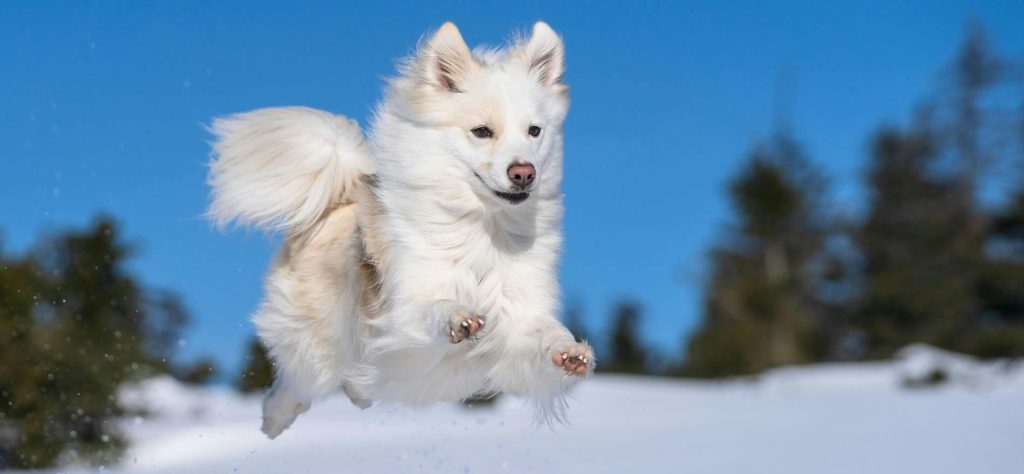
Suitability for a Multi-Pet Family
Icelandic Sheepdogs have a reputation for being friendly and sociable animals. They are known to be good with children and are often used as therapy dogs. When it comes to other pets, Icelandic Sheepdogs can get along well with cats and other dogs if they are properly socialized from a young age. However, as with any breed, there may be individual dogs that do not get along with certain animals. It is important to introduce new pets slowly and carefully to ensure a positive relationship.
Housing Requirements
Icelandic Sheepdogs require a living space that is suitable for their size and energy levels. They are an active breed that enjoys regular exercise, so a home with a garden or access to outdoor space is ideal. The garden should be securely fenced to prevent the dog from escaping, as Icelandic Sheepdogs have a tendency to wander. Additionally, the garden should be free from any toxic plants or substances that could harm the dog. Indoors, the dog should have a comfortable bed or crate to sleep in, as well as access to fresh water and food. It is important to note that Icelandic Sheepdogs are social animals and thrive on human interaction, so they should not be left alone for long periods of time.
In terms of grooming, Icelandic Sheepdogs have a thick double coat that requires regular brushing to prevent matting and tangling. They shed heavily twice a year, so extra grooming is required during these periods. The breed is also prone to ear infections, so their ears should be checked and cleaned regularly. Icelandic Sheepdogs are generally healthy dogs, but like all breeds, they can be prone to certain health issues such as hip dysplasia and eye problems. Regular veterinary check-ups are recommended to ensure the dog’s health and wellbeing.
Summary
The Icelandic Sheepdog has a friendly and loyal personality, making them a great companion for families. They are known for their intelligence and adaptability, making them suitable for a variety of living situations. They require regular exercise and mental stimulation, but their size and energy level make them a good fit for both urban and rural environments. Overall, the Icelandic Sheepdog is a great pet for those looking for a loyal and adaptable companion.
Icelandic Sheepdog Dog FAQS
Yes, Icelandic Sheepdogs are known for being great with children and make excellent family pets.
Icelandic Sheepdogs are generally healthy, but can be prone to hip dysplasia and eye problems.
While Icelandic Sheepdogs can adapt to apartment living, they require plenty of exercise and outdoor time. A house with a yard is ideal.
Icelandic Sheepdogs are known for being vocal and may bark to alert their owners of any perceived threats.
Yes, Icelandic Sheepdogs have a thick double coat and shed heavily twice a year.
Icelandic Sheepdogs have a lifespan of 12-14 years on average.
Icelandic Sheepdogs are an active breed and require at least 1-2 hours of exercise per day.
The amount of food depends on the dog’s size and activity level, but on average, they require 2-3 cups of high-quality dog food per day.
Icelandic Sheepdogs should be brushed at least once a week to prevent matting and tangling of their fur.
The average weight of an Icelandic Sheepdog is between 20-30 kg.
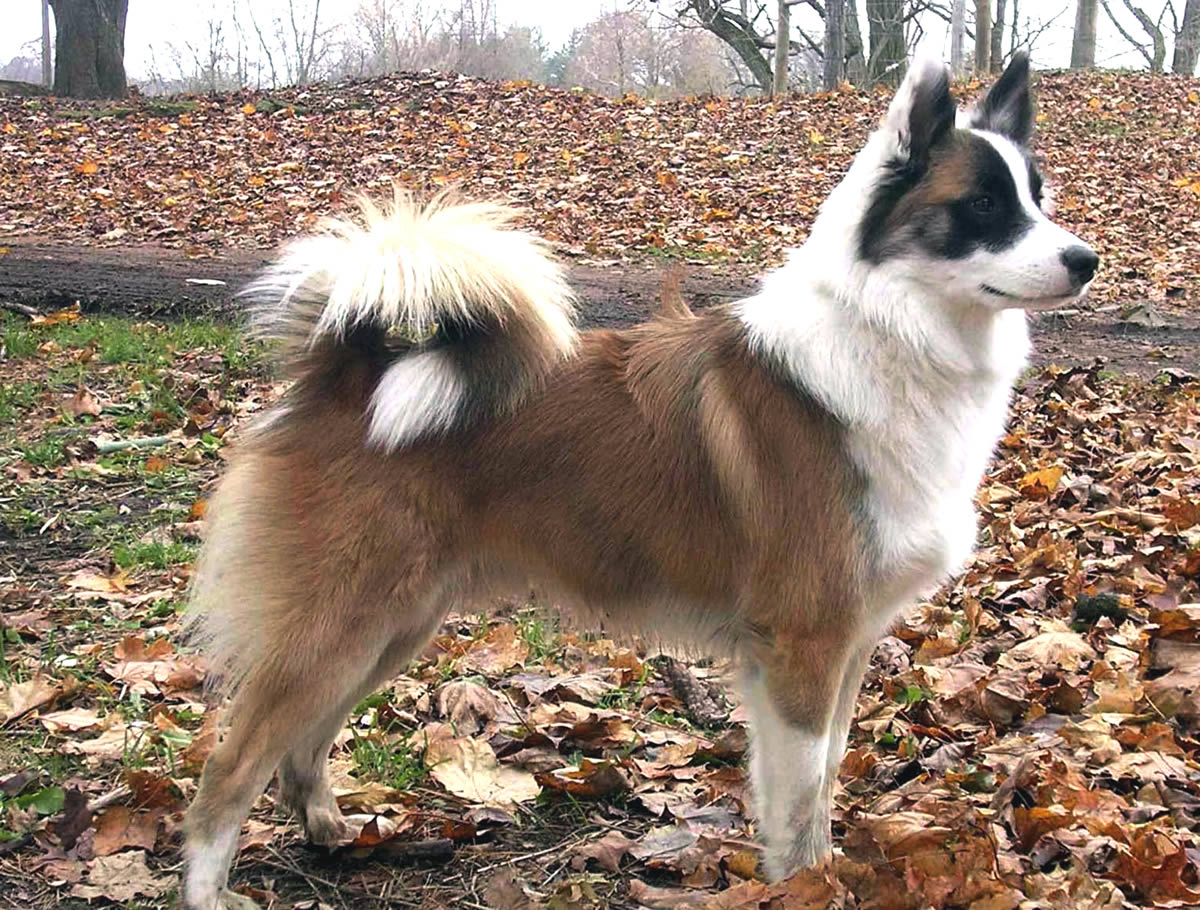
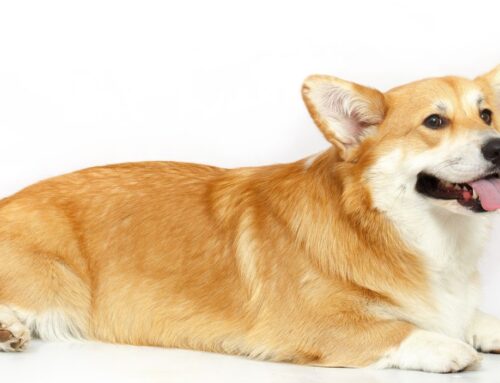
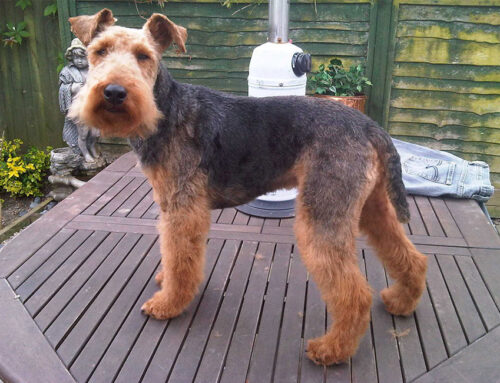
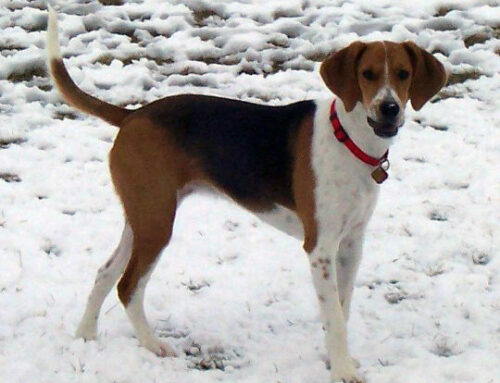
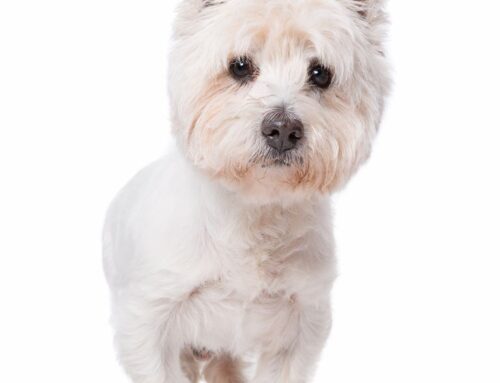
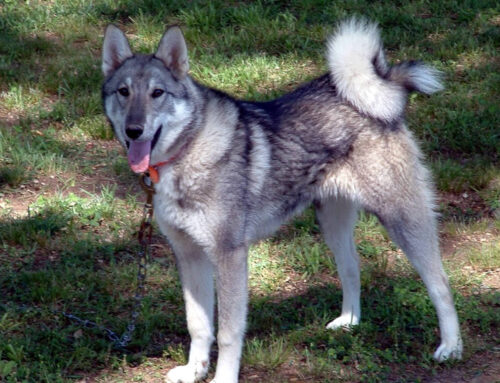
Leave A Comment